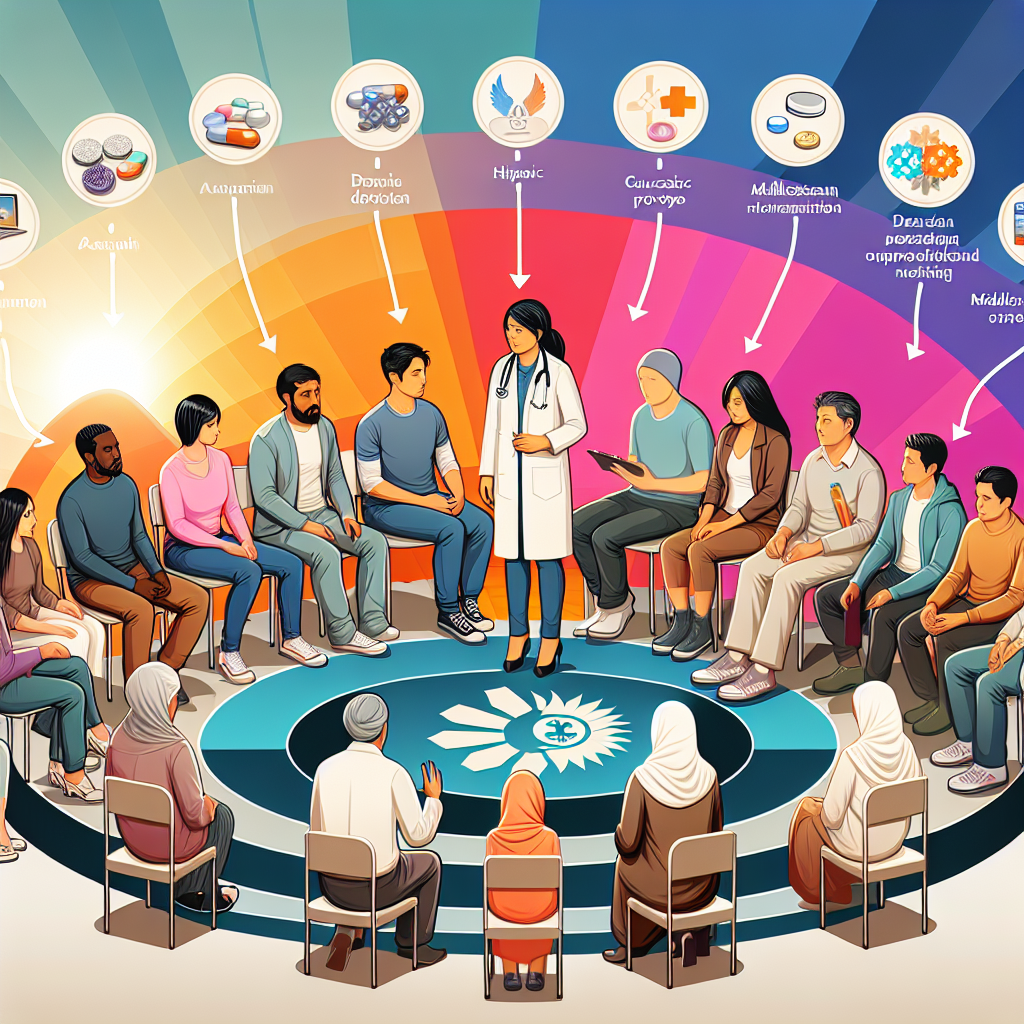-
Table of Contents
“Reclaiming Lives: Comprehensive Heroin Rehab in Amsterdam”
Introduction
Heroin rehab in Amsterdam operates through a comprehensive and structured approach designed to help individuals overcome addiction and achieve long-term recovery. The process typically begins with an initial assessment to determine the severity of the addiction and any co-occurring mental health issues. This is followed by a medically supervised detoxification phase to manage withdrawal symptoms safely. Once detox is complete, patients engage in a combination of individual and group therapy sessions, cognitive-behavioral therapy, and other evidence-based treatments to address the psychological aspects of addiction. Rehab programs in Amsterdam often incorporate harm reduction strategies, such as methadone or buprenorphine maintenance, to reduce the risk of relapse. Additionally, patients receive support in developing life skills, building a support network, and planning for aftercare to ensure a smooth transition back into daily life. The holistic approach in Amsterdam’s rehab centers aims to treat the whole person, promoting physical, emotional, and social well-being.
Comprehensive Overview of Heroin Rehab Programs in Amsterdam
Amsterdam, a city renowned for its progressive approach to social issues, has developed a comprehensive and compassionate system for heroin rehabilitation. The city’s heroin rehab programs are designed to address the multifaceted nature of addiction, offering a blend of medical, psychological, and social support to help individuals reclaim their lives. Understanding how these programs work can provide hope and clarity for those seeking recovery.
The journey to recovery in Amsterdam typically begins with an initial assessment. This crucial step involves a thorough evaluation of the individual’s physical health, psychological state, and social circumstances. Medical professionals, including doctors and psychologists, work together to create a personalized treatment plan. This plan is tailored to meet the unique needs of each patient, ensuring that the approach is both effective and sustainable.
Detoxification is often the first phase of the treatment process. In Amsterdam, detox is conducted under strict medical supervision to manage withdrawal symptoms safely and comfortably. The city’s rehab centers employ a range of medications to ease the detox process, reducing the physical and psychological discomfort associated with heroin withdrawal. This medical support is vital, as it helps to stabilize the patient and prepare them for the next stages of treatment.
Following detoxification, patients enter the rehabilitation phase, which is the core of the recovery process. Amsterdam’s rehab programs emphasize a holistic approach, integrating various therapeutic modalities to address the root causes of addiction. Cognitive-behavioral therapy (CBT) is commonly used to help patients identify and change negative thought patterns and behaviors. Additionally, motivational interviewing (MI) techniques are employed to enhance the patient’s motivation to change and commit to the recovery process.
Group therapy sessions play a significant role in Amsterdam’s rehab programs. These sessions provide a supportive environment where individuals can share their experiences, challenges, and successes with others who are on a similar journey. The sense of community and mutual support fostered in group therapy can be incredibly empowering, helping patients to feel less isolated and more understood.
Moreover, Amsterdam’s rehab centers recognize the importance of addressing the social aspects of addiction. Many programs offer vocational training, educational opportunities, and life skills workshops to help patients reintegrate into society. These initiatives aim to equip individuals with the tools they need to build a stable and fulfilling life post-rehabilitation. By focusing on social reintegration, Amsterdam’s rehab programs help to reduce the risk of relapse and promote long-term recovery.
Family involvement is another critical component of the rehabilitation process. Amsterdam’s rehab centers often provide family therapy sessions to help repair and strengthen relationships that may have been damaged by addiction. These sessions offer a platform for open communication, allowing family members to express their feelings and concerns while learning how to support their loved one’s recovery journey.
After completing the rehabilitation program, patients are not left to navigate their recovery alone. Amsterdam’s rehab centers offer robust aftercare services, including ongoing counseling, support groups, and relapse prevention programs. These services are designed to provide continuous support, helping individuals to maintain their sobriety and cope with any challenges that may arise.
In conclusion, heroin rehab programs in Amsterdam are characterized by their comprehensive and compassionate approach. By addressing the medical, psychological, and social dimensions of addiction, these programs offer a holistic path to recovery. Through personalized treatment plans, therapeutic interventions, social reintegration initiatives, and ongoing support, Amsterdam’s rehab centers provide individuals with the tools and resources they need to overcome addiction and build a brighter future.
Key Steps and Treatments in Amsterdam’s Heroin Rehabilitation Process
Amsterdam, known for its progressive approach to drug policy, has developed a comprehensive and compassionate system for heroin rehabilitation. The city’s heroin rehab programs are designed to address the multifaceted nature of addiction, offering a blend of medical, psychological, and social support to help individuals reclaim their lives. Understanding the key steps and treatments involved in Amsterdam’s heroin rehabilitation process can provide insight into how this city is making strides in the battle against addiction.
The journey to recovery in Amsterdam typically begins with an initial assessment. This crucial step involves a thorough evaluation of the individual’s physical health, psychological state, and social circumstances. Medical professionals, including doctors and psychologists, work together to create a personalized treatment plan tailored to the specific needs of the patient. This plan often includes a combination of detoxification, medication-assisted treatment, and various forms of therapy.
Detoxification is often the first major hurdle in the rehabilitation process. In Amsterdam, detox programs are designed to manage withdrawal symptoms safely and comfortably. Medical supervision is provided around the clock to ensure that patients receive the necessary care and support during this challenging phase. Medications such as methadone or buprenorphine may be used to ease withdrawal symptoms and reduce cravings, making the detox process more manageable.
Following detoxification, the focus shifts to long-term treatment and recovery. Medication-assisted treatment (MAT) plays a significant role in this stage. MAT involves the use of medications like methadone, buprenorphine, or naltrexone to help maintain sobriety and prevent relapse. These medications are carefully monitored and adjusted as needed to ensure they are effective and safe for the patient. The goal of MAT is not only to reduce the physical dependence on heroin but also to provide a stable foundation for further therapeutic interventions.
Therapy is a cornerstone of Amsterdam’s heroin rehabilitation process. Various forms of therapy are employed to address the psychological aspects of addiction. Cognitive-behavioral therapy (CBT) is commonly used to help patients identify and change negative thought patterns and behaviors associated with drug use. Additionally, motivational interviewing (MI) is utilized to enhance the patient’s motivation to change and commit to the recovery process. Group therapy sessions provide a supportive environment where individuals can share their experiences, learn from others, and build a sense of community.
Amsterdam’s approach to heroin rehabilitation also emphasizes the importance of social support and reintegration into society. Social workers and counselors play a vital role in helping patients rebuild their lives. This may involve assistance with finding housing, employment, or educational opportunities. Support groups and community programs offer ongoing encouragement and resources to help individuals maintain their sobriety and continue their personal growth.
Moreover, Amsterdam’s harm reduction policies complement the rehabilitation process. Safe consumption rooms, needle exchange programs, and access to clean syringes are part of the city’s strategy to minimize the health risks associated with drug use. These measures not only protect the health of individuals but also create a safer environment for the broader community.
In conclusion, Amsterdam’s heroin rehabilitation process is a holistic and compassionate approach that addresses the complex nature of addiction. By combining medical treatment, therapy, and social support, the city provides individuals with the tools they need to overcome addiction and build a healthier, more fulfilling life. The success of these programs serves as an inspiration and a model for other cities grappling with the challenges of heroin addiction.
Q&A
1. **Question:** What types of treatment programs are available for heroin rehab in Amsterdam?
**Answer:** In Amsterdam, heroin rehab programs typically include inpatient treatment, outpatient treatment, detoxification services, and medication-assisted treatment (MAT) using medications like methadone or buprenorphine.
2. **Question:** Are there any specific harm reduction strategies used in heroin rehab in Amsterdam?
**Answer:** Yes, Amsterdam employs harm reduction strategies such as supervised injection sites, needle exchange programs, and providing access to naloxone to prevent overdoses.
Conclusion
Heroin rehab in Amsterdam typically involves a comprehensive approach that includes medical detoxification, behavioral therapy, and social support. Medical detox helps manage withdrawal symptoms under professional supervision. Behavioral therapies, such as cognitive-behavioral therapy (CBT) and contingency management, address the psychological aspects of addiction. Social support, including group therapy and family involvement, is crucial for long-term recovery. Harm reduction strategies, such as supervised injection sites and needle exchange programs, are also part of the approach in Amsterdam. The goal is to provide a holistic treatment plan that addresses both the physical and psychological components of heroin addiction, promoting sustained recovery and reintegration into society.



